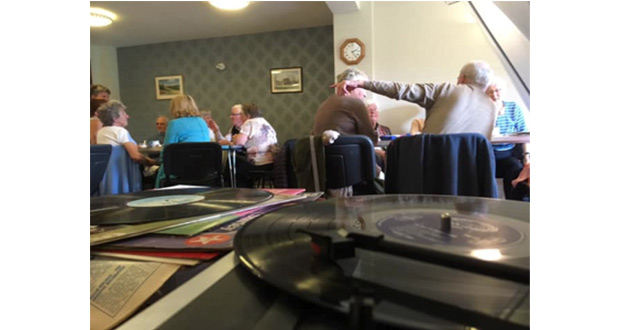Musical Memory Group Launches In The Borders
 LOCAL people in the Borders are being invited to take a dance down memory lane at a new reminiscence group.
LOCAL people in the Borders are being invited to take a dance down memory lane at a new reminiscence group.
Bield’s Turnbull Court in Duns is hosting a Musical Memories group, run by Alzheimer Scotland and the SBC Local Area Co-ordination Service, where tenants and local residents alike can listen to their favourite songs from days gone by.
The group is open to individuals with dementia, as well as the general public, who are invited along to the relaxed and friendly sessions to socialise while reflecting on music from their younger years.
Tracy Brotherston, Retirement Housing Manager at Turnbull Court, said: “Keeping social and active is really important to our tenants and so we’re always looking for ways to get involved with the local community.
“By hosting the group right here in the development, it makes it easier for tenants who find it difficult to get out and about to pop along for a sing song and a chat.”
The musical sessions will be held at Bield’s Turnbull Court in Duns on the last Wednesday of every month.
Kelly Brown, Borders Locality Leader, Alzheimer Scotland, said: “The launch of the musical memories group in Duns further supports our vision that nobody should face dementia alone. Music is such a powerful tool for generating memories, and we have all experienced an iconic song which instantly took us back to a joyful moment.
“With over 90,000 people living with dementia in Scotland, and a rising number of people receiving a diagnosis, it is the biggest public health priority. If you have any questions about dementia, or the support available in your area, call Alzheimer Scotland’s 24 Hour Freephone Dementia Helpline on 0808 808 3000 or visit our website at www.alzscot.org.”
Dr. Norman Foster, a geriatric neurologist and leading expert in cognitive disorders, said: “Research has shown that personally meaningful music is an alternative route for communicating with patients who have Alzheimer’s disease.”
“Language and visual memory pathways are damaged early as the disease progresses, but personalised music programs can activate the brain, especially for patients who are losing contact with their environment.”





